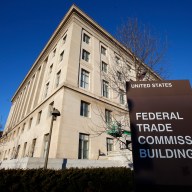By Kevin Murphy
KANSAS CITY, Kan. (Reuters) – A federal judge in Kansas agreed on Tuesday to order an independent investigation into whether prosecutors violated attorney-client privilege by obtaining video recordings of confidential meetings between inmates and their lawyers from a privately run prison. Defense lawyers told U.S. District Judge Julie Robinson at a hearing that U.S. prosecutors disregarded defendants’ constitutional rights in requesting the recordings from the Corrections Corp of America, which manages the U.S. penitentiary in Leavenworth, Kansas. Investigators subpoenaed the videos as part of a drug-smuggling probe that has resulted in charges against multiple defendants, including a guard and inmates.
While the videos have no sound, defense lawyers said lip-reading or inferences based on body language would be possible.
“We are stunned by the cavalier attitude of the government,” said Kansas Federal Public Defender Melody Brannon, who has asked for a broad review of all cases involving such recordings. “They have shrugged off the constitutional issues here.” Assistant U.S. Attorney Debra Barnett rejected that characterization but said the government supports the appointment of a “special master” for the limited purpose of examining videos in the drug case alone. No prosecutors have seen the videos, which were turned over to a “taint” team to identify any potentially privileged communications, the government said in court papers.
U.S. law protects communications between individuals and their attorneys from outside parties in virtually all circumstances.
Last week, Robinson ordered detention facilities in Kansas and the western part of Missouri to stop recording such meetings and instructed prosecutors to turn over the footage to the court. Robinson said on Tuesday that the U.S. Marshals Service had confirmed that video recordings have ceased. It is not clear whether attorney-client meetings are regularly recorded at all prisons operated by CCA, which manages 85 local, state and federal facilities in 20 states. Company representatives did not respond to a request for comment on Tuesday. The U.S. Bureau of Prisons declined to comment on Tuesday on its video recording policy.
Defense lawyers claimed at the hearing that inmates’ phone conversations with attorneys were also recorded and provided to prosecutors. Barnett said a message before every phone call advises inmates that the call will be recorded and includes a warning about discussing confidential matters. Robinson asked both sides to submit their views on how extensive the review should be. The judge said she would likely appoint a special master next month to investigate both the audio and video recordings in the case. (Writing by Joseph Ax; Editing by Tom Brown)


















